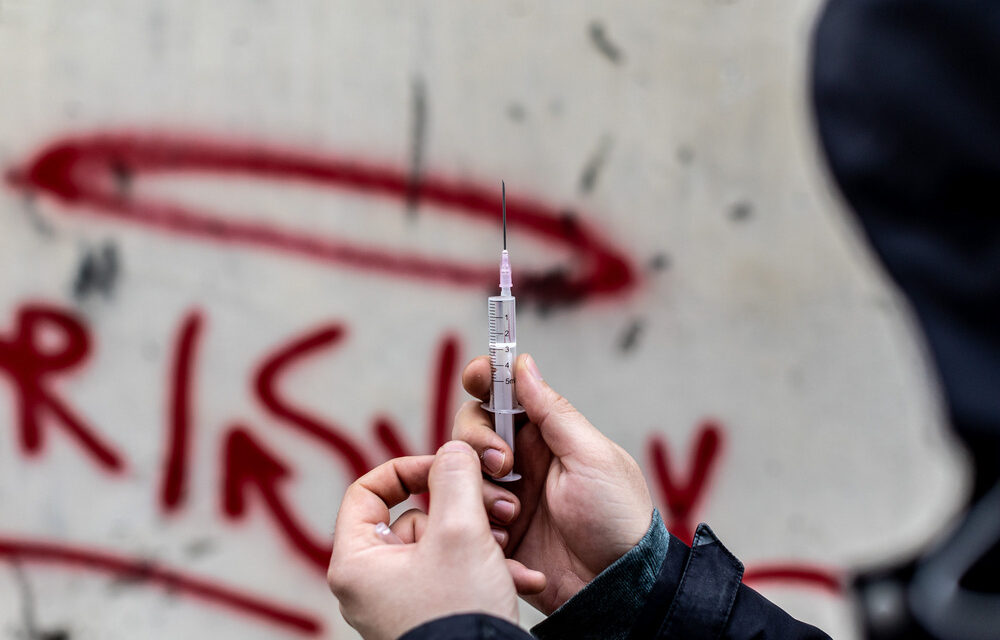The drug strategy in Budapest is the first document in the last 14 years in which the activities of activists fighting for drug liberalization have come to fruition, pointed out the Drug Research Institute.
The strategy of Gergely Karácsony's drug team is unfeasible and must be withdrawn, because it cannot protect the people of Budapest. The institute also found out that
the document was prepared by left-wing politicians, TASZ activists and pseudo-civilians calling themselves independent.
The international drug propaganda network teamed up with Hungarian drug activists, and Gergely Karácsony gave them space, the Drug Research Institute (DKI) announced. As it was written, Péter Sárosi, who had previously been made the face of domestic drug propaganda as a lay historian, played a significant role in the development of Budapest's drug strategy. According to his own admission, he was the head of the drug policy program of the organization Társaság a Szabadságógógekért (TASZ), which in several cases was found to be trying to influence Hungarian domestic politics with international sources. In addition, Sárosi publishes drug propaganda content on 444.hu.
In addition to him, the name of Tamás Kardos can be read in the material on the drug strategy, who was listed as a drug law expert on the TASZ website. Another member of the capital drug team is Tamás Fazekas, who previously worked as a lawyer for Péter Juhász, one of the best-known political representatives of Hungarian drug activism. Anikó Sokacz, who has been a municipal representative in Zugló since 2014 as a candidate for the left-wing alliance (lost in this year's election), also plays a role in the capital's drug squad, and currently supports the MSZP mayor Csaba Horváth, who was indicted by the Central Prosecutor's Office for corruption .
The creation of the strategy was prepared by an "independent" survey registered by the Hungarian Addiction Society (MAT). This is also interesting because
the leaders of the MAT participate in the capital's drug team.
The president of the company is János Szemelyácz, who has been closely cooperating with Sárosi for many decades. Katalin Felvinczi, secretary general of MAT, took the lion's share in the survey and the development of the material. Noémi Nyíri and Judit Szécsi are also members of the Karácsony drug team, who are board members of the company.
According to the DKI, the material on the capital's drug strategy is an ideological pamphlet.
There are two reasons for this: the loss of professional and administrative focus, and the lack of specifics. They make the professionally unacceptable drug liberalization argument that if it is permissible to use smartphones and consume alcohol, then why should it not be possible to smoke a weed cigarette for recreational purposes?
The drug strategy makes recommendations that contradict state or EU-level regulation.
The capital city can only solve the worsening drug chaos if it builds the strategy within its legal framework, the institute pointed out. They added that the work plan for the drug strategy only states that five working groups will be set up, which is a completely unnecessary bureaucratic tool, as they have no authority, no real plan and no corresponding budget.
Under the heading of drug prevention, the Karácsony's capital drug team is investigating the possibility of adopting what they consider to be a good practice from the union, according to which drug testing programs should be organized and supervised substance abuse rooms should be created. The drug testing programs mean that at the parties, a laboratory examines the drug user's tablet free of charge, provides information about what is in it, and then returns the tablet to its owner. Supervised substance use rooms are places where the user can use drugs safely and with medical or nursing support.
Both examples are tantamount to supporting drug use and strengthening arguments for drug liberalization.
They also push for a needle exchange program, despite the fact that it does not solve the problem, but rather perpetuates it while creating public resentment. The premises designed for such activities concentrate drug users, distributors, crime, and the complete elimination of the cleanliness and integrity of the environment.
We can see what the left-wing political forces would do in Hungary if they were to take on the role of government, the institute said in this regard.
Source: PestiSrácok.hu
Cover image: Ákos Ványi/Hírnolc













